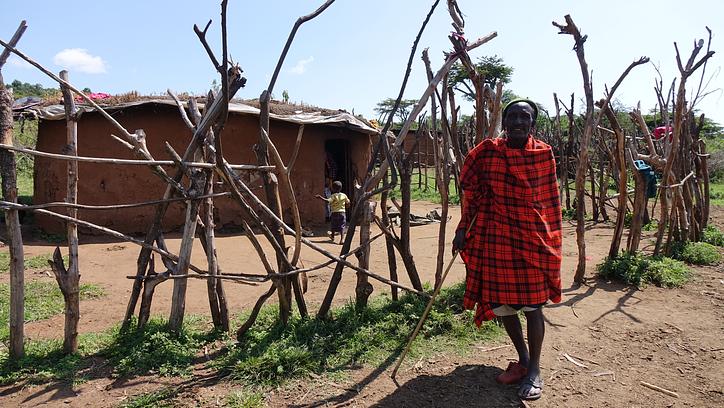The Maasai are undoubtedly among the best known Indigenous peoples worldwide and parts of their ancestral lands in Kenya and Tanzania – like the Serengeti or the Ngorongoro crater – are iconic landscapes.
But behind the travel magazines and Disney movies, there is a much more troubling story of land theft, evictions and violence. While governments, conservation organizations and tourism providers have gone to great lengths to hide these crimes, the Maasai are determined to resist.
How it began
The Maasai (“people speaking the Maa language”) are semi-nomadic pastoralists, with a deep affection for their cattle. Some families share their homes with calves at night and cattle are also crucial for food, income and community life.
Having thrived for generations in what outsiders would consider a "hostile" environment, Maasai's wealth is based on their social values. A system of communal land tenure, in which everyone in an area shares access to water and pasture, allowed the Maasai to move with their herds across “Maasailand” and successfully adapt to variable rain patterns. However, colonization by the British and Germans, and the creation of game reserves and other Protected Areas, have evicted many Maasai communities and restricted their access to their land.
And this land grab continues.
Evictions
The Maasai in Tanzania today are battling against the government's renewed attempts to evict them from their land. More than 170,000 Maasai are at risk, or have already been evicted, to make way for trophy hunting, tourism and wildlife conservation in Loliondo and in the Ngorongoro Conservation Area (NCA).
It is history repeating itself, but the Maasai are resisting. They have protested, organized and called upon courts and international allies like Survival for help. Their fight isn’t easy: Tanzanian authorities have responded with raids, shootings, the violent repression of protests, arbitrary arrests and the confiscation of cattle.
The government has denied that the Maasai are Indigenous people and it has prevented visits by independent investigators, members of the European Parliament and journalists. The authorities have cut health services, including for children and pregnant women, and other public services like schooling and access to drinking water. This is part of their efforts to force Maasai to agree to so-called “voluntary relocations”.
Complicity
The Tanzanian government is supported by big conservation organizations like the Frankfurt Zoological Society (FZS), Western governments and donor agencies, as well as international institutions like UNESCO.
They all claim that there are “too many” Maasai and cattle and that they are responsible for the destruction of the environment. The racist idea of overpopulation and overgrazing by Indigenous peoples has been deeply rooted in Western thinking since colonial times. It provides a justification for “relocations” and comes with resources and money to make them possible.
Studies attest to Indigenous peoples’ having the best skills in managing their lands and protecting the natural world. Research shows that pastoralism does not destroy the environment, but instead shapes and protects it. However, the Tanzanian government and Western conservationists partner up to restrict the Maasai’s land rights in the name of conserving wildlife. At the same time, they transform their lands into tourist attractions, which Maasai have described to Survival as a source of pollution, water scarcity and stress for their animals.
Frankfurt Zoological Society
Frankfurt Zoological Society (FZS) is a key conservation organization working on the Maasai’s ancestral land. Maasai have called FZS their “enemy number one”. Its involvement started with its long time director Bernhard Grzimek. Grzimek wasn’t just a eugenicist and member of the Nazi party in Hitler’s Germany, he was also a key advocate for removing the Maasai from their land. FZS still embraces his ideas, or as it says: “Serengeti is not pasture land”. Learn more in this video.
UNESCO has played a central role in legitimizing the land theft of Maasai territories. It has stressed that “further growth of the Maasai population and the number of cattle should remain within the capacity of the property”. Maasai have criticized UNESCO for designating Ngorongoro Conservation Area as a World Heritage Site without their Free, Prior and Informed Consent and for honoring a place with abuses and human rights violations as a WHS. Maasai representatives have, for years, been submitting reports of evictions, human rights violations, and harassment to various UN bodies, including UNESCO, and calling for a mission to investigate. When such a mission eventually took place in February 2024, they were not officially informed and the UNESCO mission only spoke to government-appointed stakeholders. The mission did not meet with legitimate representatives of the Maasai in the Ngorongoro Conservation Area. In the context of these human rights violations, Maasai representatives have requested that Ngorongoro be delisted as a World Heritage Site. Find out more in Survival’s report about World Heritage Sites and Indigenous peoples rights. UNESCO
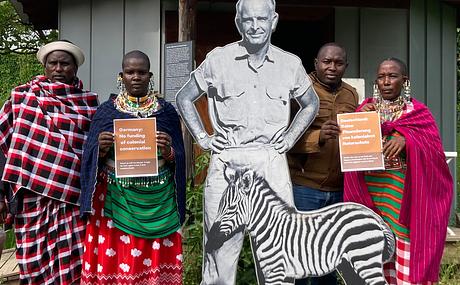 © FIAN Deutschland
© FIAN Deutschland
Way forward
Survival amplified the voices of the Maasai so their eyewitness testimonies have been heard, exposed the reckless evictions in the international media, protested outside the offices of the conservation giant FZS and successfully lobbied for a ground-breaking resolution in the European parliament in support of the Maasai. In the summer of 2024, thanks to the pressure of Maasai representatives, Survival and other Maasai supporters, the European Commission canceled several million euros for fortress conservation in Tanzania due to concerns about the situation of the Maasai.
It’s clear: The Maasai need their land in order to survive and live well – and they have a right to it. Help us campaign against the complicity of Western conservationists and donors in the evictions of the Maasai. This will also put pressure on the government. For the Maasai, for nature, for all humanity.
Act now to support the Maasai
Join the mailing list
There are more than 476 million Indigenous people living in more than 90 countries around the world. To Indigenous peoples, land is life. Find out more about them and the struggles they’re facing: sign up to our mailing list for occasional updates.
News from the Maasai
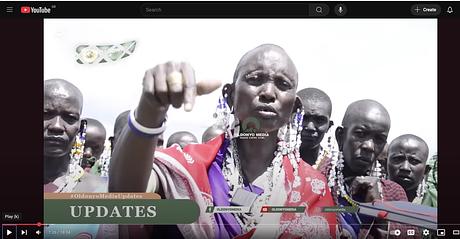
Maasai demand Volkswagen pull out of carbon offset scheme on their lands
Maasai Indigenous people in Tanzania call on Volkswagen (VW) to withdraw from a controversial carbon credits scheme.
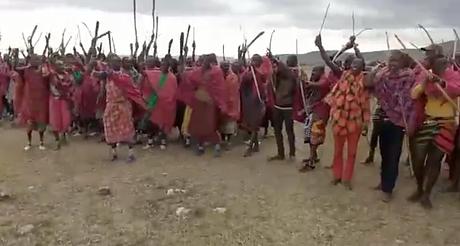
European Commission cancels planned conservation funding in Tanzania over Maasai abuses
European Commission scrapped plans to fund Tanzania projects – following violent evictions of Maasai for conservation tourism and trophy hunting.
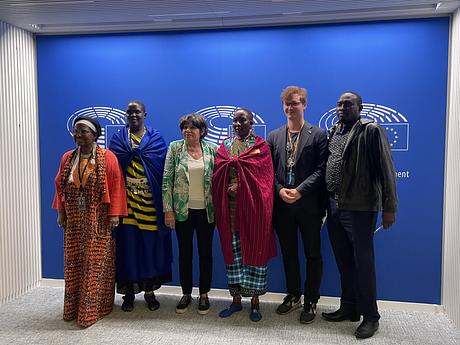
Breaking: European Parliament calls out Maasai evictions from iconic Serengeti landscape
The EU Parliament has condemned evictions of Indigenous Maasai communities under the guise of conservation.
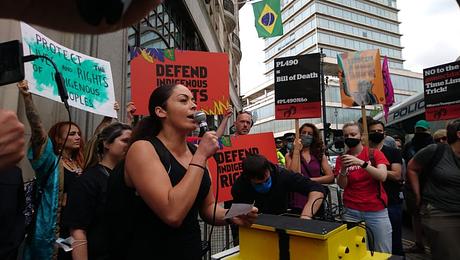
Brazil: “A momentous, historic victory” for Indigenous people as Supreme Court rejects Time Limit Trick
Opponents of Indigenous rights in Brazil have suffered a major setback after the Time Limit Trick was rejected.
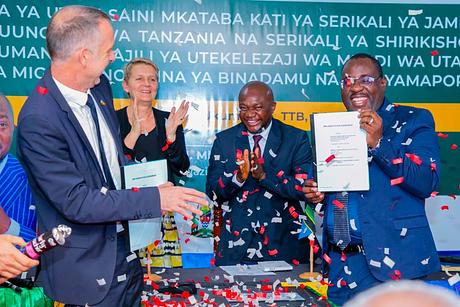
Tanzania prevents MEPs from investigating Maasai abuses
Tanzania has prevented MEPs from visiting the country to investigate serious abuses against the Maasai in the name of conservation
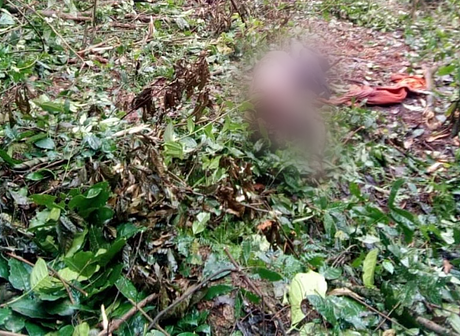
French government scraps funding plan for Kahuzi-Biega National Park, citing human rights concerns
Kahuzi-Biega National Park will no longer be funded by the French government.

